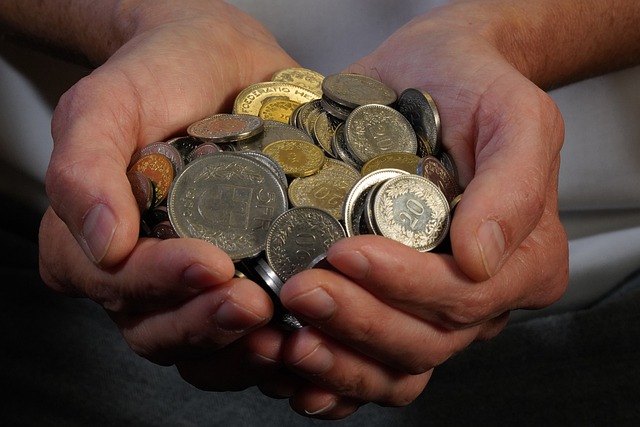You know, rooms brimming with knick-knacks, old magazines, unused appliances, and well… things. There’s a word for this – hoarding. But why do people hoard things? It’s more than just a packed room. It’s an overwhelming urge to collect and hold onto items, often way past their usefulness or value.
Now, it’s tempting to mix up ‘collecting’ and ‘hoarding’. But picture this: A collector is like a curator at a museum – organized, passionate about specific items, and eager to show them off. On the flip side, hoarding is like that drawer we all have filled with random things we can’t let go of but don’t really know why we’re keeping them. The difference? For some, that ‘drawer’ extends to their entire living space.
Ever wondered if our ancestors were hoarders too?
Our ancestors, from way back in the caveman days, had to be resourceful to survive. Think about it: Living in an era without supermarkets or online shopping meant they had to gather and store food and essentials for harsh times. In a sense, it was the ‘original’ hoarding but with a clear, survival-driven purpose. But why did they hoard things? Was it just about survival?
Remember the Great Depression? Well, maybe not firsthand, but we’ve all heard the stories. Economic downturns have a strange effect on people. The scarcity of the Depression era made many hoard things because they weren’t sure when they would get them again. For some, this mindset persisted even when times got better, and they passed it down to the next generations.
In essence, our history is sprinkled with periods when holding onto things was a necessity. While today’s hoarding is different, understanding its roots helps us empathize and see it as more than just “too much stuff.”
Why do people hoard things?
1. Psychological Reasons
The Memory Box Effect: You know those old movie tickets or dried flowers we sometimes keep? They transport us back to moments, letting us relive memories. For some, this emotional tethering extends to a multitude of items. It’s not about the material worth; it’s about preserving a feeling, a slice of time.
People Hoard Things When Indecision Meets Anxiety: Ever been unsure about tossing out an old dress or gadget, thinking, “What if I need it later?” Now, amplify that feeling. Some folks grapple with anxiety when deciding what to keep or discard. It’s like standing at a crossroads, but every path feels uncertain.
The Safety Blanket of Stuff: Odd as it might sound, people hoard things because they believe there’s comfort in numbers. For some, having things around — even if they don’t use them — creates a sense of control and safety. It’s akin to building a fort out of cushions as kids, creating our own little safe space in a big, unpredictable world.
2. Environmental and Societal Triggers
The Age of Consumerism: Live in the moment, they say. But we also live in an era of “Buy One, Get One Free” and flash sales that pop up every other week. The society around us constantly encourages consumption. It’s tempting. It’s everywhere. And sometimes, it’s easier to buy than to ask, “Do I really need this?”
Lost in the Digital-Physical Overlap: In the digital age, our physical and online worlds often blur. We hoard photos on our phones and emails in our inboxes. For some, this behavior spills over to tangible items, creating piles in both virtual and real spaces.
Life Changes and Transitions: Life isn’t always a straight road. It has its bumps – moving houses, losing loved ones, or even retiring. Such transitions can leave a void or create chaos. And sometimes, holding onto things becomes a way to cope, to find stability amidst the upheaval.
Consequences of Hoarding Things
Living Spaces Turned Labyrinths: Imagine navigating your home as if it’s a maze, with towers of items threatening to topple. For those deep in the throes of hoarding, their spaces transform from comforting havens to cluttered, sometimes unsafe, environments.
Relationship Strains: It’s tough watching someone you care about being consumed by their possessions. Family members might not understand, friends can drift away, and tensions can rise. It’s more than just about the clutter; it’s about watching someone drown in it.
The Mental and Emotional Toll: While the physical mess is evident, the mental chaos can be even more profound. Feelings of shame, isolation, and overwhelming anxiety can cloud the horizon, making the path to decluttering seem even more daunting.
Financial Implications: Ever bought something only to realize you already owned it? Or spent on storage units to hold the overflow from your home? Hoarding can be an expensive affair, straining budgets and leading to unplanned expenses.
Ways to Help and Support Hoarders:
Understanding, Not Judging: Before anything else, let’s remember – it’s easy to point fingers and harder to lend a hand. If someone you know hoards, approach them with empathy. Understand that there’s more beneath the surface, a story behind every item.
Seeking Professional Help: Sometimes, the weight of hoarding is too heavy to lift alone. Psychologists and therapists, especially those specializing in obsessive-compulsive disorders, can offer invaluable insights and coping strategies.
Organizing and Cleaning Together: The journey from clutter to clarity is smoother with the company. Offer to help organize, but remember: it’s not about throwing everything away. It’s about helping the individual decide what truly matters.
Educate and Share Resources: Knowledge is power, as they say. Sharing documentaries, articles, or even support groups about hoarding can be eye-opening. Sometimes, knowing that they’re not alone can be a big step forward for someone who hoards.
Conclusion
Beyond the Cluttered Spaces: Hoarding is more than just piles of items in a room. It’s a complex web of emotions, memories, and sometimes, unspoken traumas. When we look past the clutter, we see the individual – with hopes, struggles, and stories.
A Collective Effort: Addressing hoarding isn’t a solo mission. It requires understanding from loved ones, intervention from professionals, and most importantly, the will and effort of the individuals themselves. And, when these forces combine, the journey to declutter not only the physical space but also the mind becomes possible.
The Hopeful Horizon: There’s always light at the end of a tunnel. For those battling hoarding tendencies, with the right support and tools, there’s hope. A hope for clearer spaces, peaceful minds, and restored relationships. And as a society, it’s our shared responsibility to guide that journey, step by step.




